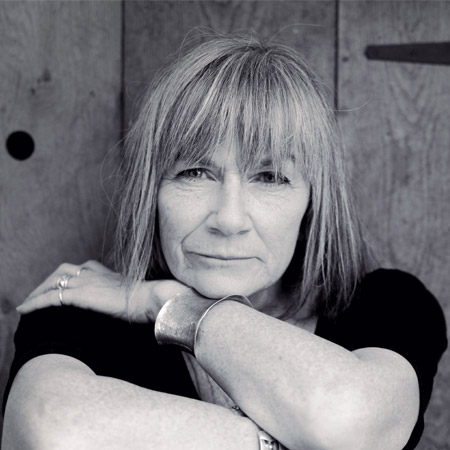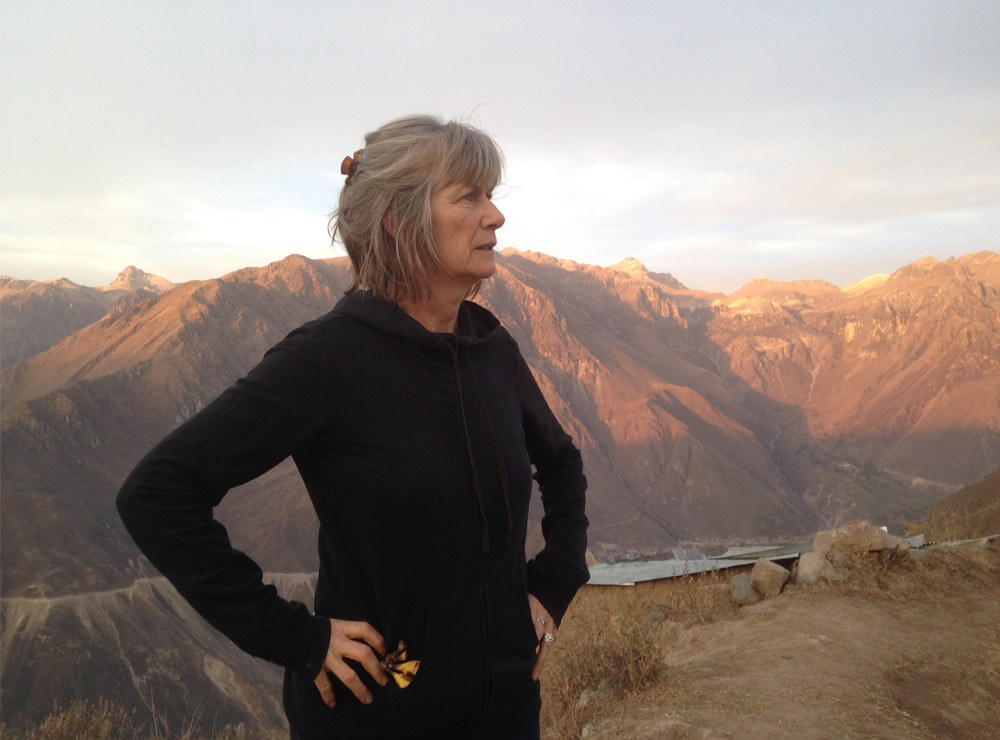by Nell Leyshon
2016 was the 400th anniversary of the deaths of both Shakespeare and Cervantes, two giants of world literature. British Council and Hay Festival published an excellent anthology of contemporary stories inspired by both writers, and I made a contribution as one of the British writers inspired by Cervantes. An unforeseen bonus was that throughout the year I did some international work with the British Council and Hay to publicise the book, but also to have a world-wide conversation about the influence of both writers. I undertook trips to Colombia, Spain, Peru, Mexico and Trinidad and Tobago. By the end of the year I had undergone radical change. I have new inspiration and drive, but it is deeper than that: the last year has affected my work more radically.
The first trip was to Colombia. In Cartagena, as part of the Hay Festival, I worked with the British Council’s scheme Elipsis, which identifies talented writers and editors from all over Colombia and supports their development. The scheme is carefully set up to be inclusive, and participants came from all over the country, from all backgrounds; this is something remarkable in such a socially divided country.
'We talked of having faith in their own voices and their own stories.'
I met the participants the day before our workshop in the shade of a white cloistered building: we talked about the events we had seen at the festival and the particularly wide range of ideas being shared. And then we talked of their own work: we talked of the importance of being brave and bold, and of having faith in their own voices and their own stories.
Following the workshop the next day, one writer asked to speak to me. She talked about my book, The Colour of Milk, which is about an illiterate young woman in 1831 who is taught, at great cost, to read and write by the vicar who employs her as a maid. The young woman was visibly moved and struggled to tell her story. She lived in Amazonia, she explained, and this was her first time out of her region. The book, she said… then she started to cry. The book, she finally told me, was the exact story of her mother’s life. Her mother was born in a village and was illiterate. She worked as a maid and, like many others in her position, was abused.
The young woman told me that after she had read the book in one sitting, she took her mother out onto the verandah where they were surrounded by green, where the rain fell onto leaves and roofs. She read the book out loud to her still-illiterate mother. She read her own mother’s story back to her.
This small exchange affected me deeply: my novel was set in my imagination, inspired by the village I grew up in, and by the past situation of women in the English countryside. And here I was on the other side of the world, hearing that the story I invented, set in the past, was the exact story of a woman brought up deep in the Colombian rain forest, and is the exact story which still continues throughout Latin America. It taught me about the power of story, and about how much we take for granted: the ability to read, and the ability to write, to express our own inner lives upon a page.
'We are challenged by what people read, and in how they value literature.'
This is one of the main benefits of working internationally; we have our worlds made larger. We are challenged by differences in form and content, and in ideas contained within pages. We are challenged by what people read, and in how they value literature. There are times in a writing career when it is important to understand the vastness of possibilities. The first for me was my early reading which was wide-ranging and insatiable. I internalised models and forms which my unconscious can draw upon. But that was then and my internal models needed refreshing. My international work has done precisely that: refresh, expand.
The last year also caused another major change. Working internationally took me away from home. It de-familiarised me. I found this liberating and it freed me from some old fears about reading my work in front of an audience. I was made brave. Being away means that you leave behind something of your identity as mother and daughter and partner, leave behind the shape of your life and responsibilities. You enter into a new creative state.
During the year I asked to not always be interviewed about my work, but to be given the space for one hour, so that I could “perform” my own work and thus talk about what was important to me, rather than respond to questions from an interviewer. I learned to speak for 45 minutes, and the “performance” contained a creative explanation of the genesis of the work, and included readings. It was unscripted, and followed by questions and answers. The act of doing this made me realise I have a previously unknown facility for performance, and for extemporising. I call it literary jazz.
'We think we know our own minds, but the landscape of them, and our understanding of them, changes and develops as we age.'
I am now doing something which was previously unthinkable, and developing a one woman show with the RSC. I have written a basic framework, but it will be improvised and therefore every performance will be unique.
One other thing has developed throughout this year. I lived in Madrid many years ago for a year and spoke Spanish. I also immersed myself in reading in translation books from Spain and Latin America. I had often regretted allowing my Spanish to slip, but over this last year I found that my language skills were recoverable. I also reconnected with that early Spanish reading (as well as, to my delight, all the writers I had read from Trinidad and the English speaking Caribbean). I realised that once we learn something it is always there: it is a matter of allowing the subconscious to locate it and drag it up.
We think we know our own minds, but the landscape of them, and our understanding of them, changes and develops as we age. I have now finished the year of travel and now am remade. I am hoping to return to Latin America and work further, giving confidence to other voices, encouraging them to tell their own stories. What they don’t realise is that I get just as much out of it as they do.
For anyone given the opportunity of international work, the following tips might be of help:
- Be bold. Take advantage of being somewhere new and experiment creatively.
- Ask people you meet to show you their country. I asked one Colombian journalist if she could show me some things in Bogota and she took me on the local buses to the main cemetery, then the market where she showed me stalls which still sell ingredients for spells. A pregnant woman about to go into labour was buying fresh herbs for the birth.
- Be open. Conversations with volunteers and readers have opened my eyes and mind, and given me inspiration.
- Ask if you can stay on longer, book into cheap accommodation, and write. I have written so much this year while working abroad. The unfamiliar surroundings jolted my mind out of default home mode. The time limit also made me create self-imposed deadlines which forced me to generate material to bring home.
About Nell

Nell Leyshon is an award-winning playwright and novelist. Her first novel, Black Dirt, was long-listed for the Orange Prize and The Colour of Milk has been published worldwide. Her plays include Comfort me with Apples, which won the Evening Standard Award for most promising playwright, and Bedlam, the first play written by a woman to be performed at Shakespeare’s Globe. Nell also writes for BBC Radio 3 and 4, and her first radio play, Milk, won the Richard Imison Award. She taught creative writing for many years with marginalised communities, and is on the Campaigns Committee and Broadcasting Group of the Society of Authors.
Photo credit: Scott Lavene.







